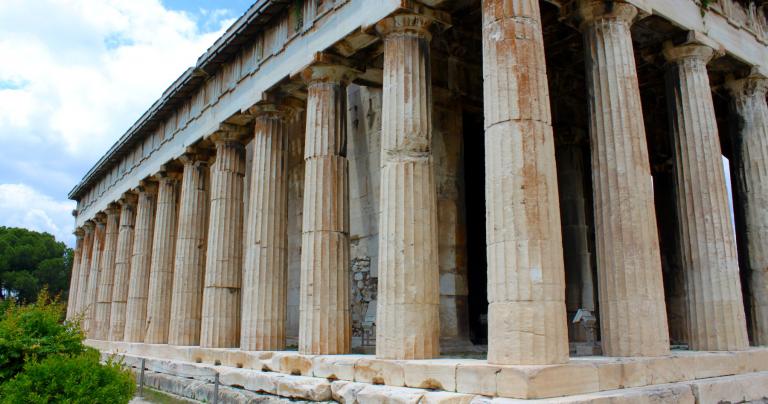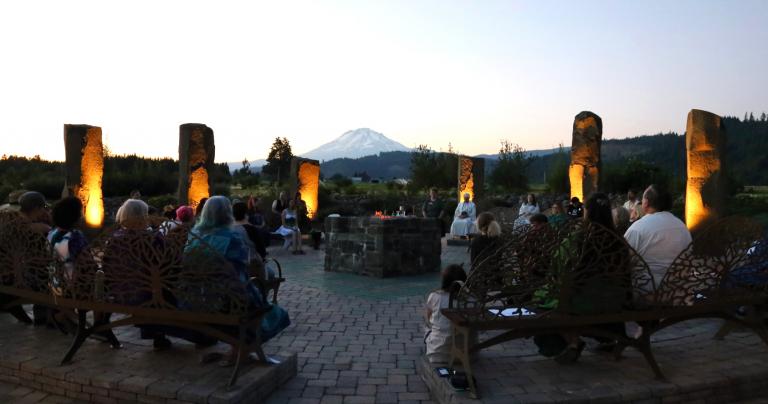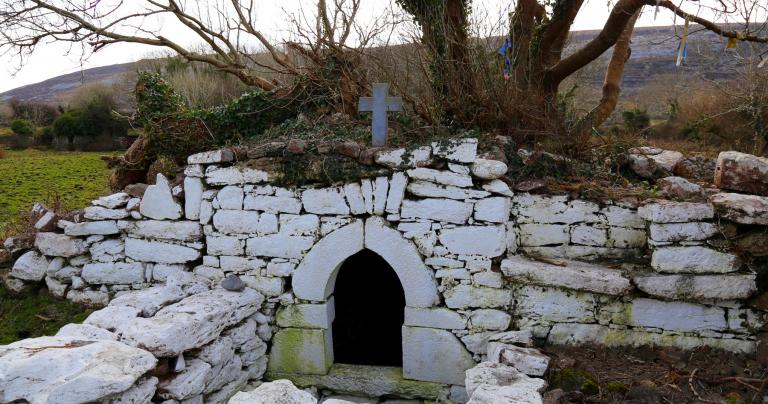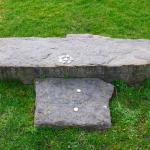A reader who wishes to remain anonymous asked a series of questions centered around Gods whose worship ceases. Here’s their question, edited for brevity.
How would you argue against Christians who say that the triumph of Christianity was because their way must be the true way and their God is stronger? Why did the Old Gods let it happen? And although many Pagans are working to restore the old religions through scholarship and through UPG, could it happen again? Can the Gods disappear?
I know some polytheists who argue that this question is unimportant. They say our job is to honor the Gods and to do Their work in this world. Leave the rest to Them.
I don’t agree. We live in a marketplace of religions that’s as competitive as the marketplace for cars, clothes, and beer. We’re under a constant barrage of religious advertising and propaganda. Telling people “just ignore it” is naïve and unhelpful. If we aren’t grounded in our Paganism, we’re susceptible to attacks by those who want to convert us to their particular religion. Even if we aren’t interested in winning debates with evangelists and proselytizers, we need to be able to answer these questions to our own satisfaction.

They don’t teach history in Sunday School
Or at least, they didn’t in any of the churches where I grew up. There was Jesus, Paul, the martyrs, Constantine, and then the whole Western world became Christian. Reality was significantly more complicated than that.
Some people converted to Christianity because its metaphysics made more sense to them than their ancestral religion. Some converted because the local Christian community did a better job of caring for them and making them feel included. But others converted because their king converted and everyone was expected to become Christian or else. Some converted at the point of a sword, while others declined to do so and died for their religion. Read The Darkening Age for accounts of Pagan martyrdom.
Further, many conversions were more superficial than heart-felt. People may have gone to mass, but they continued honoring their ancestors and participating in seasonal celebrations… and practicing magic.
It is true that for a thousand years, all of Europe was officially Christian. But that Christianity was far more diverse and far more shallow than the triumphalists claim. Perhaps most importantly, they never extinguished the spark of polytheism and Nature worship – we’re proof that it survived.
The pendulum is swinging in the other direction
The triumphalists like to talk about their victories in ancient times. They never talk about the losses they’ve suffered over the past 500 years or so.
Monopolies inevitably get lazy or corrupt. The medieval Catholic church was both. That was a direct cause of the Protestant reformation (which brought its own set of ills) and an indirect cause of the Enlightenment. In 1077 the Holy Roman Emperor Henry IV knelt in the snow for three days, begging forgiveness from the Pope. By 1534, another Henry in another country ignored the Pope and proclaimed himself the head of the Church of England.
Today, Europe is largely secular. The United States remains predominately Christian, but the influence of preachers and priests is a shadow of what it was even a hundred years ago. That’s one of the causes of fundamentalism – dying religion desperately clinging to power.
So, to those who claim Christianity triumphed over Paganism because it was the One True Way or because your God was stronger, what does it say now that you’re losing? To be fair, none of my Christian friends or family make this argument. But those who do are ignoring history.
Christianity – plus the coercive power of government – was strong enough to win. It wasn’t strong enough to hold what it gained.

Growing market share is not a Pagan virtue
Let’s face it – we like being on the winning team. There was a time when I kept hearing “Paganism is the fastest growing religion in America.” It’s impossible to determine how true that was, or is. When you’re small, adding a few people gives you a high rate of growth.
In a free society, religions grow because they’re responding to the needs and the experiences of the people. They shrink because they aren’t. But while growing is a good sign, growth in and of itself is not a virtue. Popularity is irrelevant to the ulimate truth of a religion or the strength of its Gods.
At the first Many Gods West conference in 2015, I gave a presentation titled Preparing the Way of the Gods. My argument was that if we want to be prepared for future growth, we need to concentrate on doing the right things now. If we build a strong, vibrant, virtuous religious movement, we will grow.
And if we concentrate on market share, we will fail.
Gods never die
Writing around 100 CE, the Greek historian Plutarch proclaimed “Great Pan is dead!” And yet in our time, Pan is very much alive. Osiris was killed and dismembered – Isis reassembled Him and restored Him to life. Today He presides over the weighing of the hearts of the dead.
If we who are mortal live on after death (in an afterlife, or through reincarnation, or perhaps through some other way) can a God ever really die? I do not think so.
So what happened when Christianity replaced our ancestral religions? We know the stories. Some of the Gods became saints, or were conflated with saints. Some disappeared into Nature. Others disappeared into the Otherworld. But They did not die, and They were not forgotten. They lived on in ruined temples, in caves and groves, in stories and legends, and in the hearts and minds of the peoples who worshipped Them.
Could the pendulum that is currently swinging our way reverse direction again? Yes, though I think the resurgence of the many Gods is still in its early days. But even if someday the many Gods are abandoned to an even greater extent, I do not believe They will die.
Even in a time and place where everyone is Christian or Muslim or atheist, sooner or later someone will wander into the woods and catch sight of something – or Someone – who doesn’t quite belong with the dominate religion of the time. And a Pagan restoration will begin once again.
Rebooting can be a good thing
So why did the many Gods allow Their worship to cease? That question carries a huge assumption. Namely, that the Gods care how many people worship Them. If market share is not a virtue They may have simply seen no reason to intervene.
Sometimes things get so far out of kilter you just need to start over. Not in a “kill everybody in a flood of mythic proportions” kind of way, but in an “alt-ctlr-delete” way. Keep the same framework (animism, polytheism, timeless virtues and values) but start building religious traditions over again. Some things end up the same, others are very different.
We have to be careful how far we take this line of thinking. If we go too far, we can end up assuming (or at least, implying) that our ancestors who converted to Christianity were the Pagan equivalent of the contemporaries of Noah: they sinned and so they were destroyed. By and large, this is not true.

Some conversions were won fair and square. Many more were forced or coerced. Temples were destroyed, sacred groves were cut down, holy wells were stolen and reclaimed for the new religion. Eventually the old religions were outlawed. What began as honest religious advocacy turned into religious and cultural genocide. Our ancestors who converted under duress were victims, not apostates.
As with so many things dealing with the Gods, we only know “what” – we don’t know “why.” And what we know is that our polytheist religions have been rebooted. If it becomes necessary, they can be rebooted again.
















